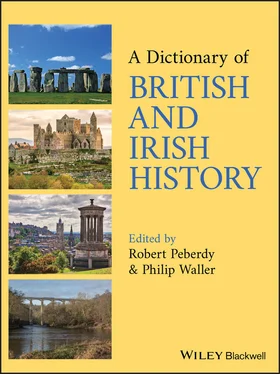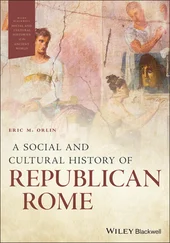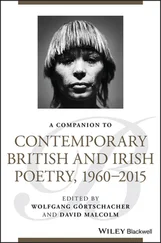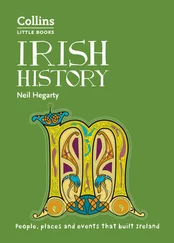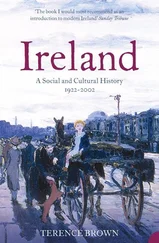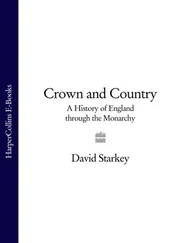Margaret became dowager duchess when Charles the Bold died (1477). Following the accession of HENRY VII in England (1485), her court was a place of refuge (until 1496) for Henry’s YORKIST opponents, and she supported Perkin WARBECK.
BURH
OE term for a fortified centre. It was notably used for the forts and fortified towns founded by King ALFRED (ruled 871–99) to defend WESSEX (S England) against VIKINGS. More burhs were founded by EDWARD THE ELDER (ruled 899–924) and ÆTHELFLÆD (ruler of MERCIA 911–18).
During the 10th century ‘burh' became increasingly synonymous with royal urban centres with mints and markets. By the 14th century it had developed into the ME term BOROUGH, which often denoted a self‐governing town. See also BURGHAL HIDAGE; TOWN GOVERNMENT, ENGLAND.
BURKE, EDMUND
(b. 1 Jan. 1729 or 1730 at Dublin, Ireland; d. 9 July 1797 at Beaconsfield, Buckinghamshire, England, aged 67 or 68). After graduating from Trinity College, Dublin, and studying law in England (from 1750), Burke became a prolific writer. He was secretary to the 2nd marquess of ROCKINGHAM from 1764, and an MP 1765–94, mostly in opposition. His rhetoric much influenced the ROCKINGHAM WHIGS. Burke himself attacked the alleged ‘secret influence’ of the Crown; he advocated conciliation with the rebellious N American colonies in the 1760s–70s; and as paymaster‐general in 1782 he achieved some ECONOMICAL REFORM. Also interested in India, in 1787 he instigated the impeachment of Warren HASTINGS.
Burke is best known for his Reflections on the Revolution in France (1790), a denunciation which became an influential expression of CONSERVATISM. See also BURGH OR BURKE FAMILY, IRELAND; FRENCH REVOLUTION, IMPACT ON ENGLAND.
BURMAA former British territory in SE Asia. British India annexed the kingdom of Burma in three stages: after wars in 1824–6, 1852 and 1885. Burma was governed as a province of INDIA until 1937, when it became a separate CROWN COLONY with limited self‐government. The British expanded rice growing and forestry. Burma was occupied by the Japanese 1942–5, during WORLD WAR II, though part was recaptured in 1945. Independence was granted in 1948, when Burma became a republic outside the COMMONWEALTH. It changed its name to Myanmar in 1989. Approx. population in 1921, 13,212,000; in 1947, 18,000,000. See also ORWELL, GEORGE; WINGATE, ORDE. BURNET, ALEXANDER(bap. 6 Aug. 1615 at Edinburgh, SE Scotland; d. 22 Aug. 1684 at St Andrews, Scotland, aged 69). Burnet served as a priest in the Church of England until ejected by Parliamentarians for Royalist sympathies (1650). After the RESTORATION (1660) he was appointed bishop of ABERDEEN (1663), then archbishop of GLASGOW (1664). Although he implemented government policy by persecuting COVENANTERS in W Scotland, he opposed the 1669 Act of Supremacy (making the king head of the Church of SCOTLAND) and was deposed. He was restored in 1674 and became archbishop of ST ANDREWS in 1679. BURNS, JOHN(b. 20 Oct. 1858 at London, England; d. 24 Jan. 1943 at London, aged 84). Burns, who left school aged ten, was an Independent Labour MP 1892–1918. He co‐operated with the Liberals, and became the first working‐class member of the British CABINET as president of the Local Government Board (1905–14, serving under Henry CAMPBELL‐BANNERMAN and H.H. ASQUITH). Opposition to war prompted his resignation in Aug. 1914 (see WORLD WAR I). BURNS, ROBERT(b. 25 Jan. 1759 at Alloway, Ayrshire, Scotland; d. 21 July 1796 at Dumfries, Dumfriesshire, Scotland, aged 37). Scotland's national poet. A son of a market gardener (later farmer), Burns became famous with the publication of Poems, Chiefly in the Scottish Dialect (1786) and was lionized by EDINBURGH literati. He also collected folk songs and wrote songs to old tunes. After failing as a farmer, he was an EXCISE man in Dumfries (from 1791). His works satirize social divisions and CALVINISM, and celebrate love. From 1801 Burns clubs were founded, which began the tradition of holding ‘Burns suppers' on the poet's birthday, celebrated with poetry, songs and speeches. See also SCOTS LANGUAGE AND LITERATURE. BURTON, RICHARD(b. 19 March 1821 at Torquay, Devon, England; d. 20 Oct. 1890 at Trieste, Austro‐Hungarian Empire, aged 69). After working in India for the EAST INDIA COMPANY (1842–9), Burton became an explorer. He visited the Muslim cities of Mecca and Medina (in modern Saudi Arabia) in 1853, and explored NE Africa in 1855. While seeking sources of the White Nile in E Africa, 1857–8, he discovered Lake Tanganyika (his collaborator John Speke found Lake Victoria, a Nile source). In 1861 Burton explored the GOLD COAST (W Africa). From 1861 Burton worked for the British consular service. He was a prolific author and translator. See also NILE, BRITISH INTERESTS. BUSINESS ORGANIZATION
Most businesses in the British Isles have been controlled by a single operator (so‐called ‘sole trader’, e.g., farmer, merchant, manufacturer) with unlimited liability for debts. Partnerships (typically with family or friends) have also existed, particularly in trade and industry (again with unlimited liability). In the 12th–16th centuries town craftsmen and traders often belonged to GUILDS; they regulated rather than conducted economic activity. Likewise, most OVERSEAS TRADING COMPANIES (from 14th century) regulated merchants.
JOINT‐STOCK COMPANIES were formed in England from 1553 (1567 in Scotland), capitalized by shareholders with transferable shares, and managed by directors and officers. Most received legal corporate status through a Crown charter. Mainly from the late 17th century, companies were also formed under articles of association. In Scotland, the Council for Trade, established 1661, authorized companies and granted privileges (to over 50 undertakings, 1661–1707). Companies developed ways to limit risks (e.g., in 18th century by vesting assets in trustees). Following the SOUTH SEA BUBBLE, the 1720 ‘Bubble Act’ (for Great Britain) discouraged formation of joint‐stock companies by requiring a charter or legislation. It was unenforced in Scotland, where some legal personality also became recognized for partnerships (retaining unlimited liability).
Repeal of the Bubble Act in 1825 reauthorized joint‐stock companies without charter or legislation. From 1844, UK companies could be incorporated by registration, and from 1856 most registered companies could declare LIMITED LIABILITY (using abbreviation ‘Ltd’). Registration was compulsory for larger companies from 1862. From the 1880s many partnerships became limited‐liability companies; public companies (with publicly traded shares) generally adopted limited liability. UK companies increased from 9300 in 1885 to 62,700 in 1914.
Legislation affecting partnerships began in 1890; company legislation was consolidated in 1908. From 1974 ‘public limited companies’ were distinguished (as ‘PLCs’) from private companies. After 1921, Northern and southern Ireland developed their own company law (former reintegrated with UK 2006).
BUTE, 3RD EARL OF
(b. 25 May 1713 at Edinburgh, SE Scotland; d. 10 March 1792 at London, England, aged 78). John Stuart succeeded as earl in 1723 and lived in England from 1745. In 1747 he met FREDERICK, PRINCE OF WALES (son of King GEORGE II), while attending horse races and became a favourite of the prince (d. 1751) and a confidant of his son George.
After George became king (1760; see GEORGE III), he appointed Bute as (northern) SECRETARY OF STATE (March 1761). Bute also entered the House of Lords as a Scottish representative peer. By Nov. he was chief minister, and was appointed first lord of the Treasury in May 1762, succeeding the earl of NEWCASTLE. He sought to build a non‐party ministry based on the KING’S FRIENDS.
Читать дальше
